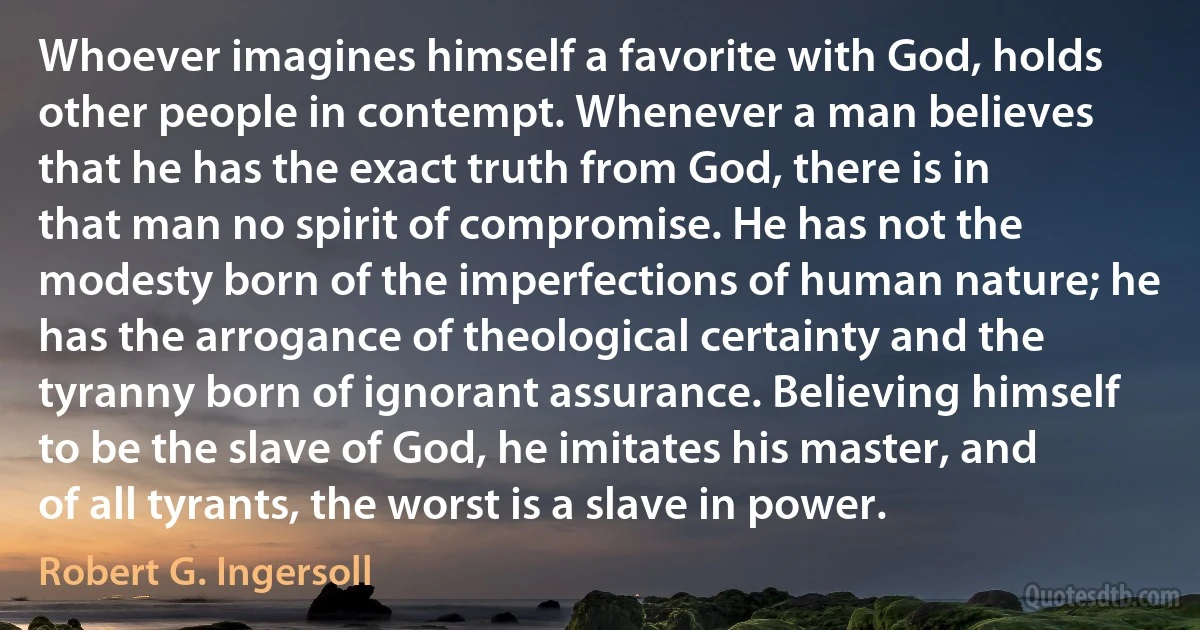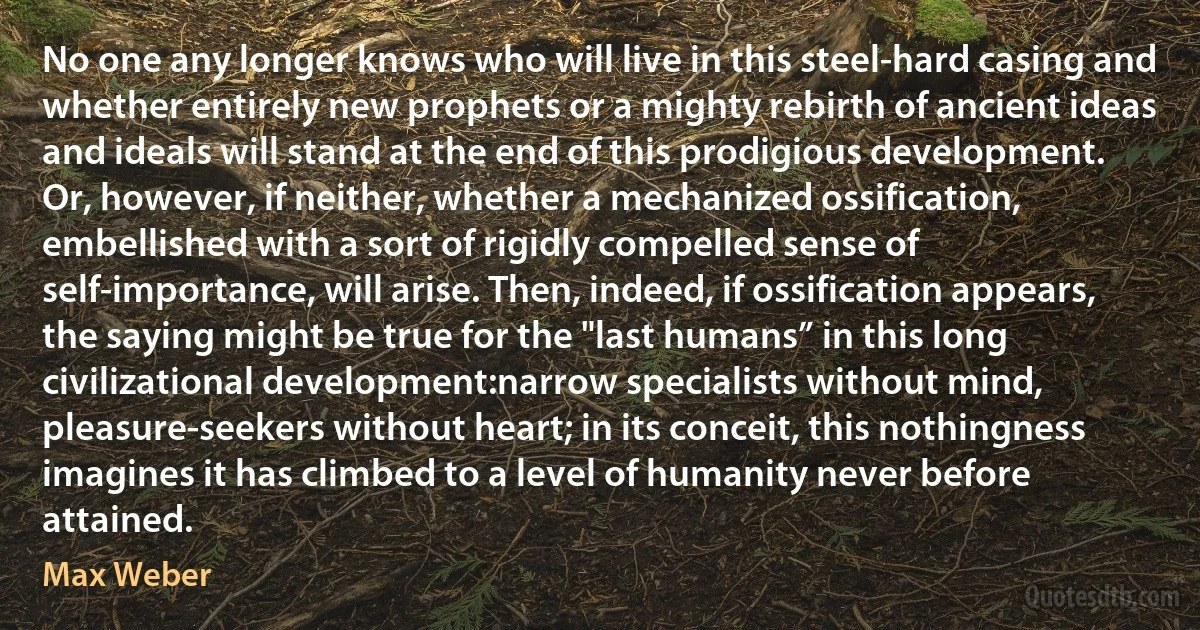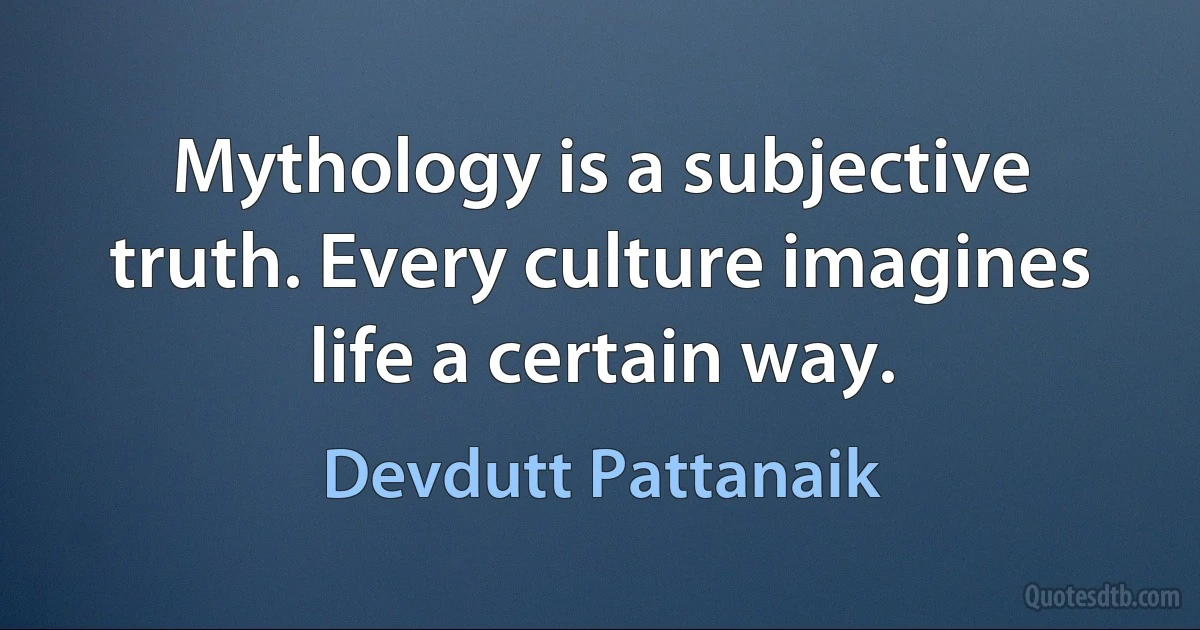Imago Quotes - page 3
I conceive the essential relationship between God and the world to be not one of power and violence, as might think the primitive man, who worships physical strength and imagines that it is a superior power shaking the earth with earthquakes or hurling a thunderbolt through space; it is nearness, something which might seem insignificant but which brings spiritual awareness.

Aldo Capitini
When someone goes to the doctor and says, "I hear a voice in my head," he or she will most likely be sent to a psychiatrist. The fact is that, in a very similar way, virtually everyone hears a voice, or several voices, in their head all the time: the involuntary thought processes that you don't realize you have the power to stop. Continuous monologues or dialogues. You have probably come across "mad" people in the street incessantly talking or muttering to themselves. Well, that's not much different from what you and all other "normal" people do, except that you don't do it out loud. The voice comments, speculates, judges, compares, complains, likes, dislikes, and so on. The voice isn't necessarily relevant to the situation you find yourself in at the time; it may be reviving the recent or distant past or rehearsing or imagining possible future situations. Here it often imagines things going wrong and negative outcomes; this is called worry.

Eckhart Tolle
The comedy is always the same. In the first act the hero imagines a place where happiness exists. In the second he strives towards that goal. In the third he comes up short or what amounts to the same thing he achieves his goal only to find that happiness lies a little further down the road.

James Branch Cabell
When a simple man who has no skill in dialectics believes an argument to be true which he afterwards imagines to be false, whether really false or not, and then another and another, he no longer has any faith left, and great disputers, as you know, come to think, at last that they have grown to be the wisest of mankind; for they alone perceive the utter unsoundness and instability of all arguments, or, indeed, of all things, which like the currents in the Euripus, are going up and down in never-ceasing ebb and flow.

Socrates
Still, there are moments when one feels free from one's own identification with human limitations and inadequacies. At such moments, one imagines that one stands on some spot of a small planet, gazing in amazement at the cold yet profoundly moving beauty of the eternal, the unfathomable: life and death flow into one, and there is neither evolution nor destiny; only being.

Albert Einstein
This poet is now, most of the time, an elder statesman like Baruch or Smuts, full of complacent wisdom and cast-iron whimsy. But of course there was always a good deal of this in the official rôle that Frost created for himself; one imagines Yeats saying about Frost, as Sarah Bernhardt said about Nijinsky: "I fear, I greatly fear, that I have just seen the greatest actor in the world.”
Sometimes it is this public figure, this official rôle - the Only Genuine Robert Frost in Captivity - that writes the poems, and not the poet himself; and then one gets a self-made man's political editorials, full of cracker-box philosophizing, almanac joke-cracking - of a snake-oil salesman's mysticism; one gets the public figure's relishing consciousness of himself, an astonishing constriction of imagination and sympathy; one gets sentimentality and whimsicality; an arch complacency, a complacent archness; and one gets Homely Wisdom till the cows come home.

Randall Jarrell
A man who imagines that because he has a head full of knowledge that he is sufficient for these things had better start learning again. 'Who is sufficient for these things?' What are you doing? You are not simply imparting information, you are dealing with souls, you are dealing with pilgrims on the way to eternity, you are dealing with matters not only of life and death in this world, but with eternal destiny.

Martyn Lloyd-Jones
I imagine that as one penetrated out from some enormous forest of the tropics, the wild beasts would become fewer, the gloom would lighten, and the horror of the place would slowly lift. Yet as one emerges nearer to the edge of London, and nearer to the beautiful influence of the hills, the houses become uglier, the streets viler, the gloom deepens, the errors of civilisation stand bare to the scorn of the fields.
Where ugliness reaches the height of its luxuriance, in the dense misery of the place, where one imagines the builder saying, "Here I culminate. Let us give thanks to Satan," there is a bridge of yellow brick, and through it, as through some gate of filigree silver opening on fairyland, one passes into the country.

Lord Dunsany
When the chancellor imagines I have the inclination to become his successor, he is mistaken tremendously. Right now, I wish that he continue holding his office and that he sees for himself how poorly he has operated recently. I consider anyone who wants to accept the succession to be very bold. When one or another successor has broken his neck, perhaps there is room for discussion.

Alfred von Waldersee
The movement of people and ideas is ... more than useful; it is sacrosanct. It forms part of the process by which the whole human race becomes both one and diverse, and makes itself more godlike, by affirming in the individual as well as in the species, its preeminence over the particular social and cultural worlds that it builds and inhabits. Both the movement of people and the movement of ideas can unsettle and frighten us, driving us back into ourselves. They can also inspire us to reimagine and to remake our interests, our ideals, and even our identities, by beginning to detach them from the settings with which we habitually associate them. Each of them is therefore an invitation to open ourselves to the new, in a world in which every man and woman has a better chance to become the original that he imagines himself to be.

Roberto Mangabeira Unger
What we commonly call sensibility, depends, in a great measure, on the power of imagination. Point out two men, any object of compassion; --a man, for example, reduced by misfortune from easy circumstances to indigence. The one feels merely in proportion to what he perceives by his senses. The other follows, in imagination, the unfortunate man to his dwelling, and partakes with him and his family in their domestic distresses.... As he proceeds in the painting, his sensibility increases, and he weeps, not for what he sees, but for what he imagines. It will be said, that it was his sensibility which originally aroused his imagination; and the observation is undoubtedly true; but it is equally evident, on the other hand, that the warmth of his imagination increases and prolongs his sensibility.

Dugald Stewart
The whole point of science is that most of it is uncertain. That's why science is exciting--because we don't know. Science is all about things we don't understand. The public, of course, imagines science is just a set of facts. But it's not. Science is a process of exploring, which is always partial. We explore, and we find out things that we understand. We find out things we thought we understood were wrong. That's how it makes progress.

Freeman Dyson
While Moses forbids 'graven images' of Him whose name is not to be taken in vain, Spinoza goes farther. He clearly infers that God must not be so much as described. Human language is totally unfit to give an idea of this "Being" who is altogether unique. Whether it is Spinoza or the Christian theology that is more right in their premises and conclusion, we leave the reader to judge for himself. Every attempt to the contrary leads a nation to anthropomorphize the deity in whom it believes, and the result is that given by Swedenborg. Instead of stating that God made man after his own image, we ought in truth to say that "man imagines God after his image," forgetting that he has set up his own reflection for worship.

Helena Petrovna Blavatsky



